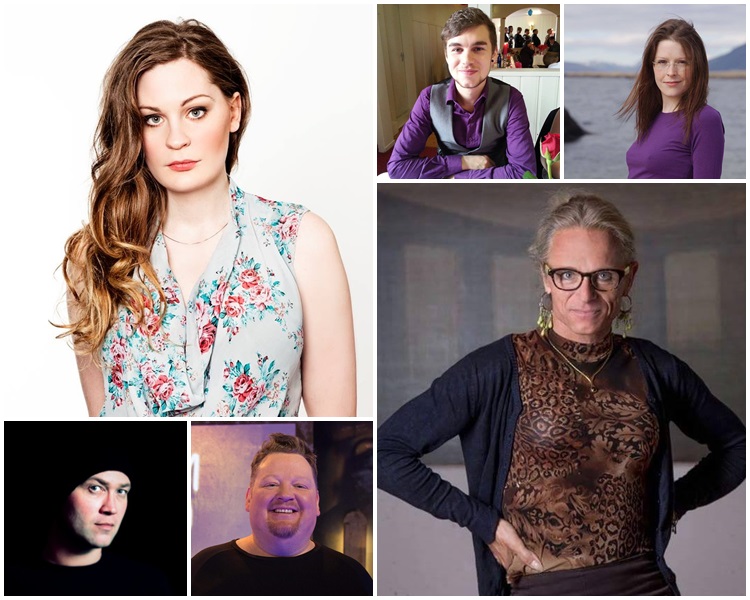Icelanders pride themselves in being accepting and non-judgemental and one of the leading countries when it comes to queer rights. Some even say that the acceptance in the society is so much that there is no more need for Reykjavík Pride. That the fight is over. But what does the queer community itself say. Is there still prejudice in Iceland? And how does it show itself?
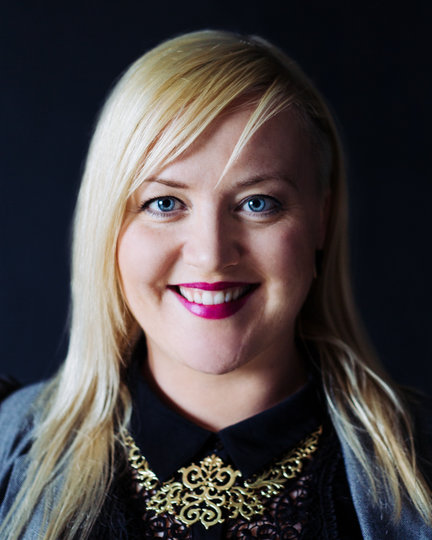
Eva María Þórarinsdóttir Lange, 34: “I can speak from experience, that when my girlfriend and I go into a “straight” bar and are spotted holding hands or showing in any other way that we’re a couple, not to mention if we dare to kiss, some straight guys instantly pop up in front of us asking us for more. It’s incredibly annoying and they’re totally invading our comfort zone.
For lesbians, this harassment is usually merely annoying but for gay guys it can get more offensive; while straight guys find lesbians exciting they tend to not be too keen on gay guys.
So even here, in lovely little Iceland, there’s still prejudice, there are simply different types of prejudice and this is one of them.”
“…even here, in lovely little Iceland, there’s still prejudice, there are simply different types of prejudice…”
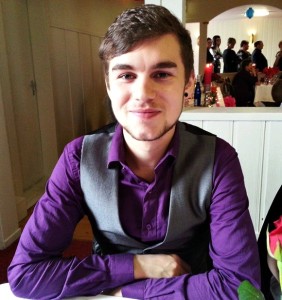
Hjálmar Forni Sveinbjörnsson, 21: “I think that gays are sensing a decline in tolerance against homosexuals; there was great awareness here 10 years ago and “older” people have accepted gays but I fear there’s a new generation coming up that’s not as accepting.
Personally, if I go out clubbing wearing a drag, I avoid going beneath Bankastræti because that’s where the young people hang out and many of the young guys seem to have a lot of prejudice.
They think they’re tough guys and try to impress each other, and the girls, by shouting stuff at us. I’m not saying I’m too scared to go near them but I’d never kiss a guy in front of them or anything, there’s always a stare, some mouthing and unpleasant gestures, at least.”
Georg Erlingsson Merritt, 37: “When I go downtown wearing a drag, there are always a few fools, as I choose to call them, who make comments and have negative attitude and it’s just down to me to be unfazed and answer them back, then they usually shrink back.
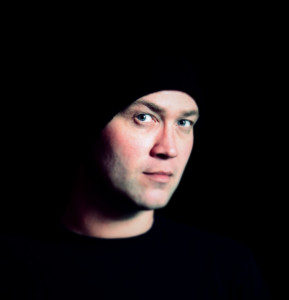
However, what I find strange is this trend amongst gay people, to have attitude against those who wear a drag or accentuate their looks in some way. Suddenly, some gay people shy away from showing they like that and even say it’s disgusting to dress up in a drag. Then, the same people go home and watch RuPaul’s Drag Race on TV.
Recently, I was asked to attend a birthday party wearing a drag, which I happily did. There a woman thought it funny to stick her hand up to my crotch. I of course got furious and told her off. A little later, a man came up to me and said I shouldn’t be so sensitive about this, as I was asking for it by wearing a drag, and my jaw dropped to the floor!
If this attitude is emerging, then there’s something really wrong with our fight for queer rights. Basically, I think it’s a relapse in your campaigning if people like myself can’t be the way we are without running into trouble with both straight and queer people, which is why I think it’s even more important now to go out wearing a drag!”
We don’t want others to think we’re different
Our interviewees are not only of the opinion that there is still prejudice against queers in society, but that it varies. That the entertainment industry has possibly obscured society’s perspective of what it means to be queer – think Modern Family-type soccer dad and cosmopolitan L Word-type career woman). That it has made it so “straight-looking” that those who don’t live up to these normalised images, who don’t look cis-gender, are more likely to experience prejudice. And are because of that not accepted for who they are.
Reynir Þór Eggertsson, 42: “I can’t remember how long it’s been since I first saw criticism on how all homosexuals in TV and films were queens and dykes. I think this attitude has always been there, since gay people started appearing in the media one way or another (usually in a negative, or at least laughable light). While queer people have become more visible in society the criticism is that they’re not shown as the true diverse group that they are, and that’s of course very understandable.
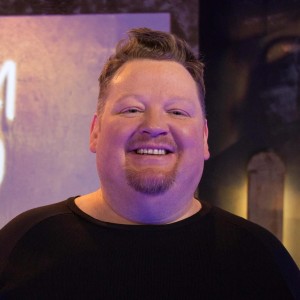
However, there are certain groups within the queer community that have gone too far in demanding that the queens and dykes will be silenced and hidden behind the scene, just like the fat back up singers who aren’t allowed in Eurovision any more. The thing is, the closet doors are everywhere and many gay people find it convenient to jump inside when it suits them. That’s something that the queens and dykes have never been able to do. So they’ve been forced to be the face of the fight for gay rights and therefore often suffered all sorts of violence or even paid with their lives.
As I said in the beginning, the negative attitude amongst gay people towards those of us who don’t fit into the “straight” mould is nothing new in our society, they only become more obvious when it gets easier to come out. Because those who are different ruin the argument that we’re “just like everybody else”. And that’s where our own homophobia feeds, in our hearts – we don’t want others to think we’re different!”
“…there are certain groups within the queer community that have gone too far in demanding that the queens and dykes will be silenced…”
Tora Victoria, 48: “I’ve heard this discussion amongst gay people and I think it’s fair to say that it’s a topic that needs to be addressed. It’s deep-rooted and revolves around “the norm”. I don’t have time to go too deep into what’s considered “normal” but you can see for instance by the fact that when two women hold hands in public, it’s much less of a deal than when two men do it.
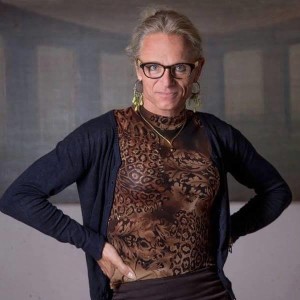
Queer people can now exist in society as long as they appear “normal” at least. Anything “non-normal” must be kept within the queer community and hidden from the rest. This why the Reykjavík Pride Parade is still so important.
We, the transgender people, are way behind gay people in getting public acceptance and being visible in society. To be gay is possibly considered more “normal” than being transgender, simply because transgender people are not as common and haven’t been part of the public discussion for as long, thus haven’t reached as far in their fight for rights.
A lot of the prejudice against transgender people are based on ignorance, that transgender people are simply homosexuals who are just “flaming gay” and wearing a drag. And this sort of prejudice can be equally much found within the gay community as outside of it; the fact that I’m being asked to comment on gay people’s issues is actually a great indicator of that.
“ If for instance, a “male-to-female” person looks fairly feminine (not to mention pretty) then that person doesn’t experience as much prejudice.”
You could liken the “straight-influence” amongst gay people to the status of being “passable” amongst transgender people. If for instance, a “male-to-female” person looks fairly feminine (not to mention pretty) then that person doesn’t experience as much prejudice. If she’s not, she gets a totally different attitude. It’s all about looking “normal” and in this case, it’s about fulfilling some standard image. At the end of the day, all variations from the “norm” are publicly disapproved, whether that’s queer people or not.”
Those who are closest to the norm defend it
That brings us to another question: does prejudice really exits within the queer community?
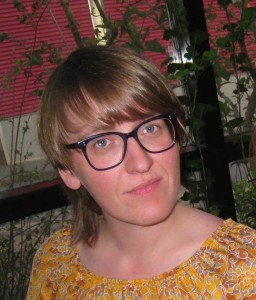
Íris Ellenberger, 37: “It’s evident that when gay people seek acceptance under the presupposition that they’re just like everybody else, and then receive that acceptance, those who are the closest to the “norm” start defending that image and frown upon those who somehow undermine it. So those who stand outside the “norm” are more likely to experience prejudice and disapproval.
I remember hearing many ugly comments about gay men of Asian origin, that people couldn’t tell them apart because they all looked the same and stuff. I have also heard gay men speak badly of other gay men because they were “too feminine” or too flamboyantly gay and somehow looked TOO gay. And then I’ve heard them bad mouthing lesbians because they weren’t “feminine enough” or didn’t live up to a certain female image. Then I’ve heard lesbians, who try to fit into the prevalent image of women, do exactly the same.
Furthermore, I’ve heard all of those people make very prejudiced comments about transgender people. So it always appears to be those who are the furthest from the “norm” or the middle who are prejudiced against, even within their so-called group.”
“I have…heard gay men speak badly of other gay men because they were “too feminine” or too flamboyantly gay and somehow looked TOO gay.”
Guðmunda Smári Veigarsdóttir Dísuson (queer activist): “Yes there’s prejudice amongst us. Is it new? No, but certain groups are not as marginalized as they once were. Especially gays and lesbians as well as some trans people with “passing privileges” sometimes too. Although there’s a lot of improvement needed in relation to trans issues. Young trans people especially suffer human rights violation, having to deal with BUGL (the Child and Adolescent psychiatric Department) and the bullshit they face there!
But with less marginalisation it’s more demoralising and hurtful when these groups prejudice against those who are still in the fight. Those who are treated like shit out in the street. Those who face people who still claim trans doesn’t exist. Those who still get shit from their parents, and then having to try to defend their right for existing to some “privileged gay guys” – who on top of that refuse to stop using the term “gay pride” or just “gay” as a denominator for all Queer (LGBTQIA+) people. So maybe there’s not more prejudice but they run deeper and have become a lot more hurtful.”
Acknowledge the diversity
What ways are there to fight prejudice from the general community and in the queer community?
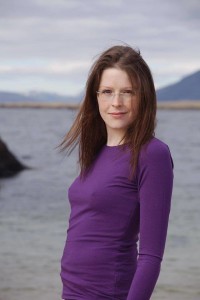
Guðmunda Smári Veigarsdóttir Dísuson: “It would be a good start to start acknowledging the diversity and to take it into account. To change the website name “GayIceland” to something more inclusive. And stop calling Pride “Gay Pride”, just use “Pride” or “Reykjavík Pride” And stop believing that Iceland is some Queer Utopia, it’s still far away from it!”
Íris Ellenberger: “Learn about your privileges and check your privileges all the time. Also, start thinking about ways to break down norms instead of constantly seeking to fit into them.”
Kitty Anderson, 33: “It’s often claimed that queer people have gained most of their rights. At the same time, it’s often forgotten that even though homosexuality was removed from the list of mental disorders in 1993, there are still groups under the queer umbrella who are defined as sick. Just in 2012 a law was passed which defines “Trans” as a disease and still today surgery is performed on Intersex children because biological diversity is still defined as a sickness. However humankind’s diversity is not a disease and together we should make sure that groups within the queer community are not identified as sick or disordered.”
“…we can only grow and become better as people if we try to show understanding and empathy towards the struggles of each other.”
Ugla Stefanía Jónsdóttir, 24: “When it comes down to our own community I think it‘s all about realizing what we have in common and why it is so important to stick together and create solidarity. The reason why all of the groups under the queer umbrella are being discriminated are because of gender norms, first and foremost. This also relates to other power structures within our community and in the end, we are all brought down because of these factors.
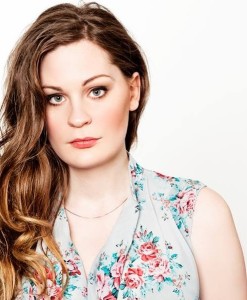
We need to step a bit out of our own bubble and realize how much we have in common with each other, even if we don’t have the same identities there are so many similarities and we can only grow and become better as people if we try to show understanding and empathy towards the struggles of each other.
Starting within ourselves and focusing on our own community I think is so important and that definitely multiplies towards the general community.
Be curious, seek knowledge in other groups, make sure you are supporting others and not damaging them; because if you are discriminating other groups whether that be within the queer community or not, you are only damaging yourself and your own fight.
Be well-rounded, be aware. Never stop learning and hearing about experiences from other people and groups.”

